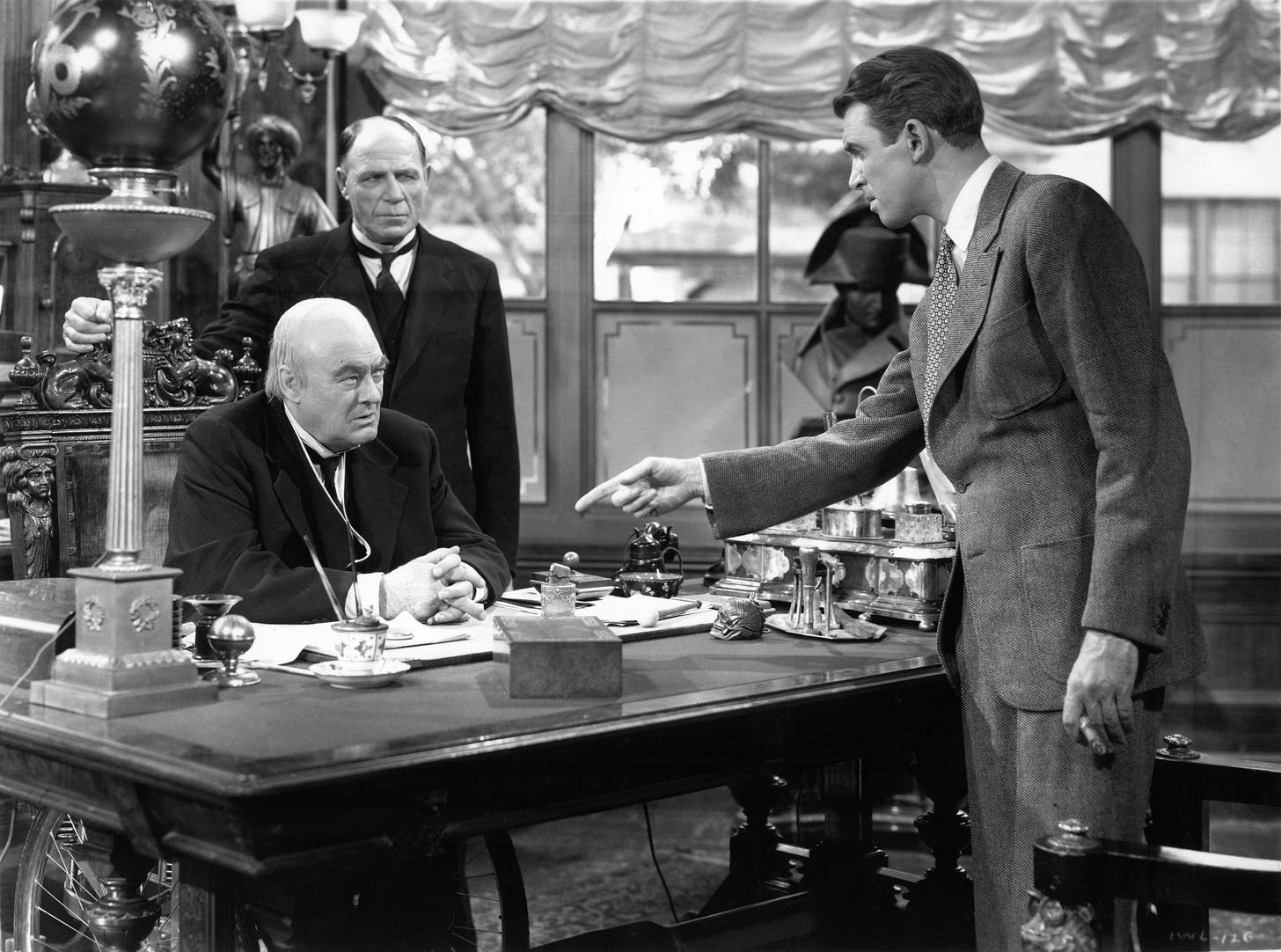When did George Bailey become the bad guy?
Compassion isn't the antithesis to capitalism; in communities across Canada it is the defining feature - and it'll help us fend off the forces that seek to cow us

George Bailey is supposed to be the hero. The big-hearted financier from 1946’s It’s a Wonderful Life is celebrated as the nice guy who always tried to do good by his family, friends, co-workers and community and, in the end, was rewarded.
How far we have travelled from the ideals of Bedford Falls to a place in time where decency is ridiculed by the powerful, and market-driven angels are flying over to the gleefully self-interested Old Man Potter.
These purveyors of billionaire-backed populism want to convince us that compassion has no business in the businesses of the nation.
That’s not just ridiculous; it’s a lie.
Compassion, the emotional response to provide aid to help alleviate suffering, is not the antithesis to capitalism; in communities across this country, it is a defining feature.
When it is present, companies gain reputations as trusted partners, good corporate citizens and great places to work that can attract and retain talent, a bellwether for success in the 21st century.
I believe that’s called a win-win – and it’s hardly a new concept.
When George and Mary Bailey, played by Jimmy Stewart and Donna Reed, cut the ribbon on a new affordable housing subdivision funded by Bailey Bros. Savings and Loan, they weren’t breaking new ground.
Released the week before Christmas in 1946, It’s a Wonderful Life reflected contemporary corporate and government thinking.
Compassion Was Part of Canada’s Rapid Industrialization
Here in Canada, company-built housing was not uncommon from the 1920s onward as industrialization took hold and factories were built on cheap farmland located outside urban cores.
To attract and retain employees, companies built housing, sponsored and supported social activities, such as employee sports leagues and the performing arts, and paid for bussing to transport employees’ children to school.
My parents and older sisters lived in a company-built subdivision, Marigold Crescent, owned and managed by British-American Oil (BA Oil), a company that was neither British nor American but 100 percent Canadian.
Keep reading with a 7-day free trial
Subscribe to Side Walks to keep reading this post and get 7 days of free access to the full post archives.




